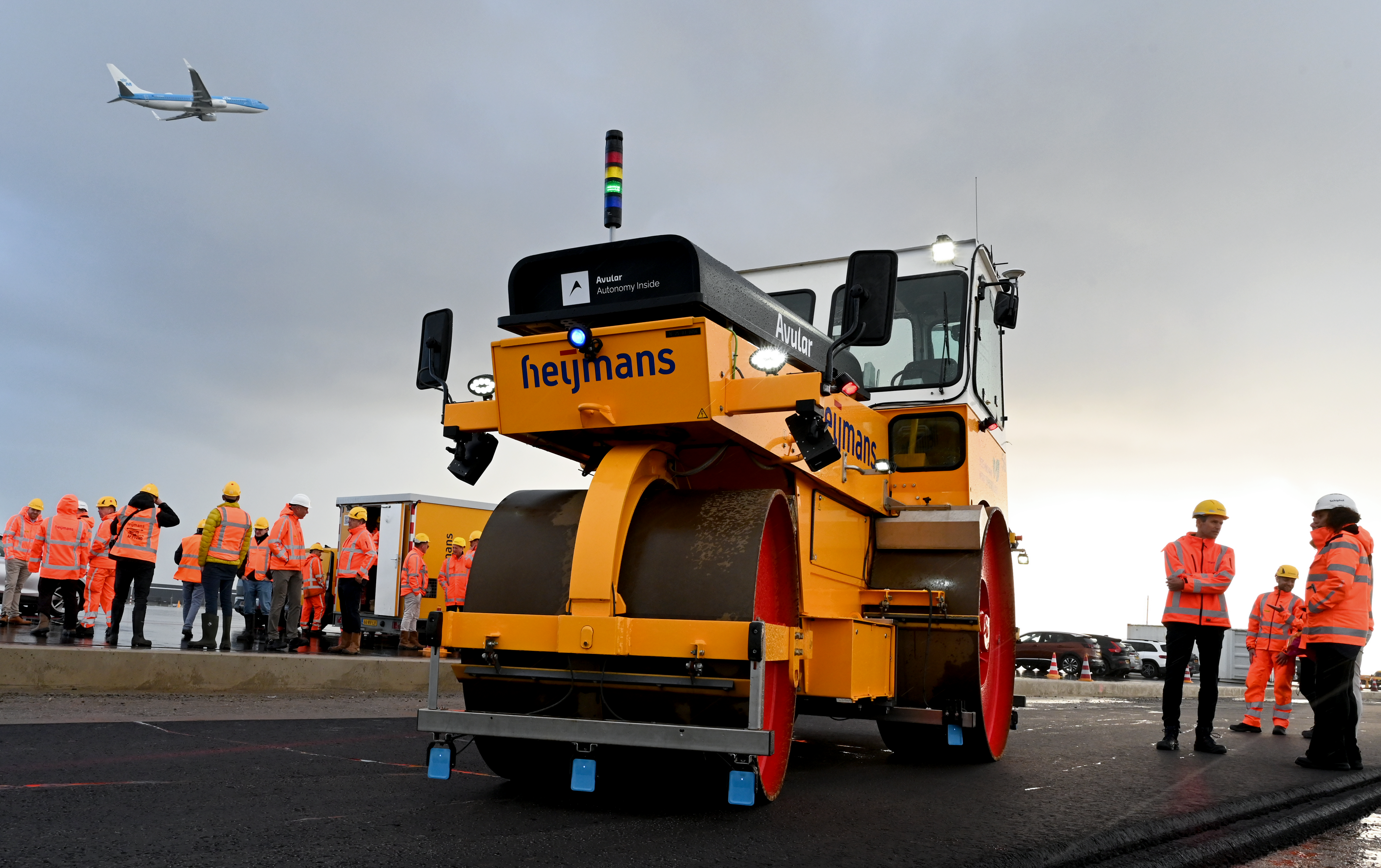Yesterday, innovation literally rolled into action. At Schiphol Airport, the autonomous asphalt roller made its first public debut during a live demonstration, a moment that marked a major step forward for the future of infrastructure maintenance and construction in Europe.
The demonstration, attended by representatives from Schiphol, Heijmans, and Avular, as well as various media outlets including NOS and BNR, showcased what becomes possible when technology, expertise, and collaboration come together.
Before the demonstration, an inspiring discussion led by Ben van der Burg brought together leaders from Schiphol, Heijmans, and Avular to explore how autonomous solutions can address the challenges in infrastructure, and make construction work more efficient, safer and more sustainable. The session set the stage perfectly for what followed, the live debut of the autonomous roller in action.
Addressing urgent infrastructure challenges
As highlighted by NOS, the Netherlands faces an urgent challenge: a growing shortage of skilled professionals in maintenance and construction. Many experienced road workers are nearing retirement, while attracting new talent is increasingly difficult. Meanwhile, the nation’s infrastructure, from roads to bridges and viaducts, continues to age, adding pressure to complete maintenance on time.
The autonomous asphalt roller is not designed to replace people, but to empower them. By automating repetitive and precision tasks, it enables smaller teams to accomplish more, safely and efficiently. Over time, one operator could manage several machines simultaneously, expanding capacity, keeping maintenance on schedule, and ensuring the quality of critical infrastructure.
Avular’s role: Adding autonomy to existing machines
As technical partner to Heijmans, Avular contributes its expertise in mobile autonomy to make this innovation a reality. By integrating autonomous capabilities into existing vehicles, Avular transforms traditional construction equipment into intelligent, automated solutions that support more efficient and sustainable infrastructure maintenance.
This debut marks a proud milestone for all teams involved and an important step toward a more autonomous, resilient, and future-ready construction industry.
